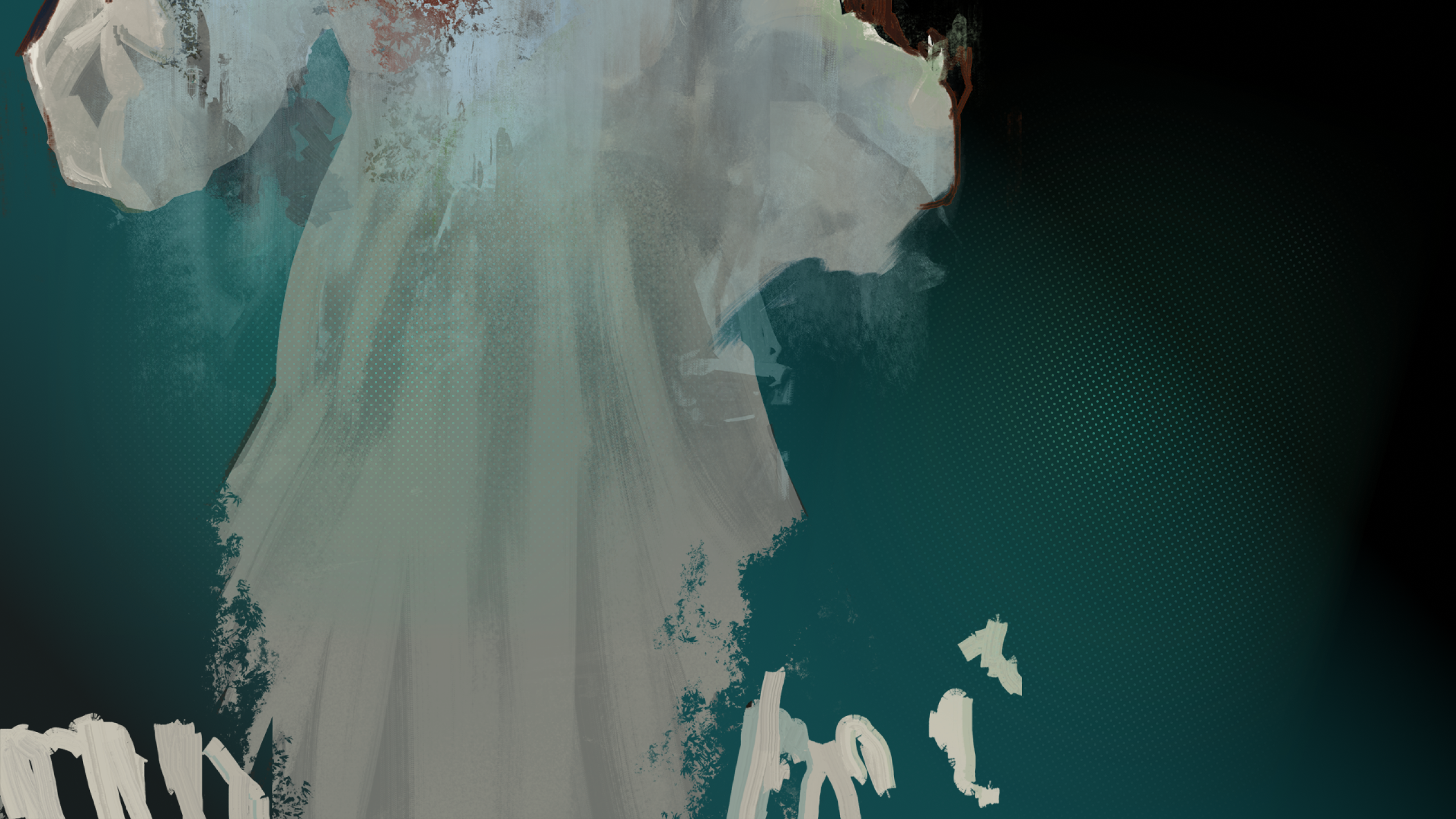Original article written by Izual and published in Canard PC. Translation by Steph Noviss. Thank you for giving us the opportunity to share this article with the world.
“GETTING IT WRONG MAKES THE GAME MORE FUN.”
Robert Kurvitz, lead designer and lead writer for Disco Elysium, fills us in on how to lose at role-playing and what his RPG sets out to achieve.

Canard PC: In an RPG, if a player gets something wrong you can generally expect negative consequences. But how do you punish the player for their mistakes if their character is already a massive loser?
Robert Kurvitz: “You never prevent them from accessing a part of the game. A mistake should affect how you react in future, by responding to what just happened. It should make you feel embarrassed, afraid, regretful. Most of all, it has to be a genuine experience, written in such a way that the player sees the value of it as they build their character and doesn’t just want to restart the game straight after. We’ve worked really hard to make these mistakes some of the game’s best moments in terms of role-play, and I think people feel closer to their character when he gets something wrong than when he gets it right. For example, there’s one scene where you have to interrogate eight armed guys, just you and your partner. They own up to having committed the crime, but they start taunting you. “Get your gun out – you’re finished!” There’s nothing you can do against these eight guys; you’re utterly powerless, but at the same time you’re still a cop (who has to arrest them – Ed.). But if you fail to bring the situation under control too many times, you start doing truly CRAZY things. You pull out your gun, put it under your chin, and threaten to kill yourself! That would be the worst decision ever! Your partner tries to help you and it goes on for ages… Everyone will remember that moment. It’s very powerful for your character to go through that. You discover things about him that you wouldn’t have found out otherwise, and all of this will have consequences later on. Or even straight away, as it’s much harder to be convincing towards these guys now that they see you as that unhinged cop who tried to kill himself. So then you have to do a little minmaxing and redistribute points (in the character profile – Ed.), reconsider your strategy, go and speak to their boss, and think how you could manipulate them. Getting it wrong makes the game more fun.”
“I want people to expect a lot more from video game writing.”
What kind of story are you aiming to tell in Disco Elysium?
“First of all, it’s a very meticulously structured detective story. The cop is a modern-day knight. He’s the main character, and his job is to meddle in other people’s business. Everyone HAS to speak to him; he can open any door. Writers have been using police detectives ever since the French invented them in the 17th century. (To the interviewer, who suddenly becomes a representative for all French people) Thank you, thank you! Best character ever!… So, yeah, I have a lot of respect for crime novels. Everything has to be so carefully thought-out. You need to have insane plot twists, and your internal logic has to be flawless. And so we have huge plot twists and the storyline takes some completely wacky turns, but at the same time there’s also that need for realism and raw brutality. All of this is still no more than a method, a tool.
What this story truly aims to do is to express, at a very primal level, what it is to live inside this lump that sleeps eight hours a day and spends the rest of the time thinking. How this bag of flesh with a squishy head on top somehow manages to muddle through with his money. You’re stuck inside a body, inside a brain, strolling through life yet never knowing how you ended up there and why something called nature, after having created this troubled lump of a human being, is quite happy to just fling him against a wall and leave him for dead. I really wanted to use the RPG as a way to look more deeply into this problem and how ridiculous it is; its comical side but also its tragic side. And then the feeling of utter triumph when you get it right. It’s incredible – highly unlikely, but truly incredible – to get it right as a human being. Not many people manage to get it right; most of us fail. Basically, overall, it’s sort of a complete novel which works by making use of the cool and funny side of crime fiction.”
Have you identified any traps to avoid in video game writing?
“Oh… All of it, I reckon. So far, the entirety of video game writing has been one giant trap. I should clarify right away that, in my opinion, real quality can only happen when you write for video games specifically. Not when you write in the same way as you would for a film. You can produce excellent cinematographic writing in video games, for example The Last of Us among others. These are very well written, but real video game writing has to be interactive, with choices, consequences, and a story that’s a bit like a big Rubik’s Cube which adapts and changes depending on what the player does. There is huge potential in this non-linear approach, but so far all it’s done is fall into traps.
The first is never to let your skills system support your writing. You read the text as if you were reading a novel. In general, skills are useful in combat, but peaceful skills are boring, or else they are there to overcome obstacles passively. And actually it’s this under-used side of the skills system that has the most influence on the game’s writing! So there are obstacles to overcome, like “when you reach 90 you unlock this option”, and there are dice rolls where a failure doesn’t strictly change anything. Even the RPGs with the best writing, such as Planescape: Torment, are constantly battling with the Dungeons & Dragons-style skills system they’re based on. So that’s the first trap, but… Oh my god, there are so many others. So many others.”

There has been less and less tolerance of lore dumps over the last few years. How do you convey the full breadth of your universe to the player without using them?
“There are lore dumps in Disco Elysium. As long as they’re done well, it’s not an issue: they mostly happen with the “encyclopedia” skill, which provides information on the game’s universe. It doesn’t give essential, well-structured facts, though – it gives random information, pretty much however it pleases. But passing on bits and pieces of knowledge like this is one of the best ways of building a world. In real life, nobody has a user manual to explain everything – you hear little snippets all over the place. You don’t know where everything is or how everything works. This is why we shouldn’t be afraid of confusion, because in real life people are very confused when it comes to the ‘lore’ of their own world. They are faced with contradicting news sources, for example. So I like the idea of this “encyclopedia” skill, because if your character hasn’t invested in it enough there are certain things in the Disco Elysium world you won’t even notice. I think it’s good that you need to make an effort to create a character who will actually ask for these little lore dumps.”
What can Disco Elysium bring that’s new to gaming?
“I won’t beat around the bush – I want to completely revolutionise role-playing games. We need to fine-tune our game until we make that revolution possible. To revolutionise the use of stories, choices, and consequences. The use of skills. What “skill” means. I want there to be peaceful skills that actually represent real life, human imagination, sadness, the power of suggestion, dance… you know, that whole range of authentic experiences you get from tabletop RPGs and from reality. I don’t want all those body-counting shoot ’em ups, structures that encourage aggression, all those weird and idiotic things that games generally use.
I want people to expect a lot more from video game writing. I want writing to become so good that we start seeing a brain drain. With ambitious novelists and scriptwriters coming to write for games, and understanding that you can genuinely use a video game to say something that will still be of value in a hundred years. That you can express what you really want to express through our characters, and not just produce what the licence requires. I want there to be fictional universes that talk about our own real life experiences. About the political problems we’re facing, the geopolitical structures around us, the problems of the modern world, etc. Universes which don’t leave us feeling numb, alone, and abandoned after we have finished exploring them. Universes which actually equip us with life tools and provide context for what’s happening to us. Which give us the strength to carry on with our lives, instead of making us feel empty to the point where we say, “Oh my god, I want to go back to the land of the Elves, but I can’t; I’ve already seen it all”.
The best aim behind this revolution in how worlds are built is that of changing how people interpret escapism. I want them to feel good when they return, better equipped, ready to accomplish things, with new tricks to use as they go about their business. Siths and Jedis are really just tired metaphors for talking about politics. They’re dulling our minds; they don’t explain anything.
Voldemort can’t help us understand what Trump is about. It’s senseless; it makes you stupid. Fantasy worlds provide tools with which to face the world, but the wrong tools will render us incapable of doing that. I want us to build worlds which make us capable. Which help us deal with the world better.”
Thanks for joining us for Part 2, hope you enjoyed this Canard PC feature!



